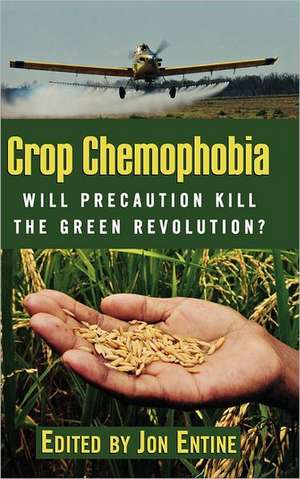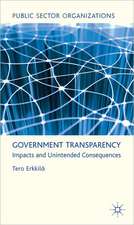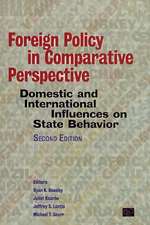Crop Chemophobia
en Limba Engleză Hardback – 15 feb 2011
Preț: 337.01 lei
Nou
Puncte Express: 506
Preț estimativ în valută:
64.49€ • 67.64$ • 53.68£
64.49€ • 67.64$ • 53.68£
Carte disponibilă
Livrare economică 12-26 martie
Preluare comenzi: 021 569.72.76
Specificații
ISBN-13: 9780844743615
ISBN-10: 0844743615
Pagini: 158
Dimensiuni: 158 x 229 x 18 mm
Greutate: 0.37 kg
Editura: Rowman & Littlefield
ISBN-10: 0844743615
Pagini: 158
Dimensiuni: 158 x 229 x 18 mm
Greutate: 0.37 kg
Editura: Rowman & Littlefield
Notă biografică
Cuprins
List of Illustrations
Introduction
Jon Entine
Part I: Perspective
Chapter 1: European Pesticides and Herbicides int eh Crosshairs
Euros Jones
Chapter 2: The Problems with Precaution
Jonathan H. Adler
Part II: Case Studies
Chapter 3: The Case of Atrazine
Jon Entine
Chapter 4: The Tart Cherry: Pesticides and Precaution
Mark Whalon
Chapter 5: Unintended Consequences: Dangerous Misconceptions about Public Health Insecticides, the Environment, and Human Health
Richard Tren
Part III: Precautionary Politics
Chapter 6: Precaution, Custom, and the World Trade Organization
Claude Barfield
Chapter 7: Feeding a Hungry World: Opportunity and Obligation for U.S. Agriculture
Douglas Nelson and Alexander Rinkus
Index
About the Authors
Descriere
In Crop Chemophobia, Jon Entine and his coauthors examine the "precautionary principle" that underlies the EU's decision and explore the ban's potential consequences-including environmental degradation, decreased food safety, impaired disease-control efforts, and a hungrier world.


















